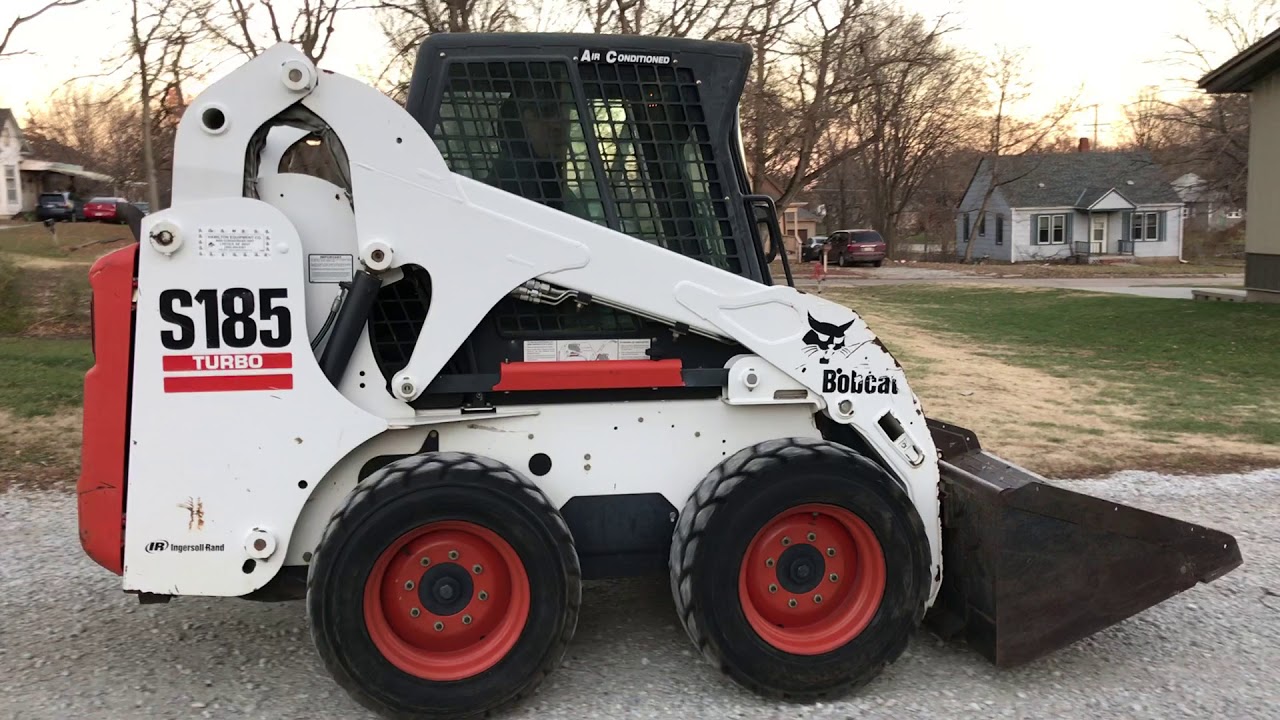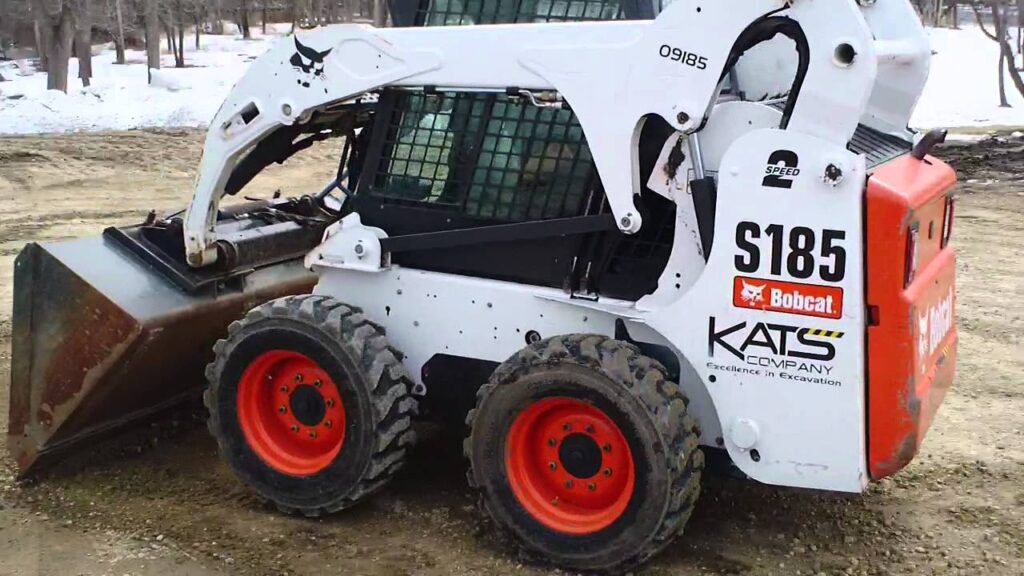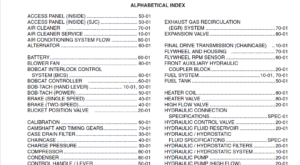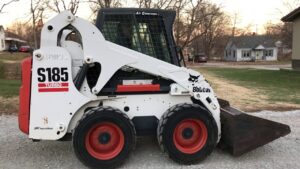Being a reasonably new paver contractor,bobcat s185 issues has really caught my attention. After using it for a couple of weeks straight, I feel that there is lots to know about this bobcat. It’ll be easy to recognize that the auto transmission mechanism is easy to switch into 8 various speeds and also the ergonomic trigger may be adjusted to match just about any size hand. To overcome your problems with Bobcat S185 or any other paver equipment, I offer you some simple things you can do by yourself.

How to fix bobcat s185 air conditioning problem
The Bobcat S185 is a Skid Steer Loader. It features a 68 hp (51 kW) Perkins engine. The S185 was produced in 2006 and has been in the market for more than 10 years.
The Bobcat S185 is designed to carry a maximum load of 1750 lbs and can operate for up to 4 hours on a single tank of fuel. This makes it ideal for construction sites where there are no large amounts of heavy equipment or machinery to move around frequently.
The Bobcat S185 has an operating weight of 7200 lbs and can be used for lifting loads up to 14,000 lbs with ease thanks to its powerful hydraulic system that provides more than enough power when needed most. It also comes equipped with four-wheel drive so it can handle any type of terrain without issue and has two forward speeds as well as one reverse speed which allows you to maneuver through tight spaces easily without having to worry about getting stuck or running into obstacles along the way.
The Bobcat S185’s air conditioning system is designed to keep you cool while working hard outside during hot summer days or if you need some relief from the heat inside your home after being out all day long doing yard work such as mowing lawns, trimming bushes and trees
How to solve bobcat s185 cooling system problems
The cooling system in your Bobcat is responsible for removing excess heat from the engine. The cooling system consists of a pump, radiator, hoses and thermostat. The water pump forces coolant through the engine block to absorb excess heat. The thermostat regulates the temperature of the coolant by allowing it to only circulate when a certain temperature is reached. When the coolant reaches the predetermined temperature it moves into the radiator where it is cooled. If this system isn’t working properly, it can cause overheating problems with your Bobcat’s engine.
Step 1
Inspect the thermostat to make sure it is working properly. A faulty thermostat will cause your Bobcat to overheat because it prevents the coolant from circulating through the radiator at low temperatures. You can inspect the thermostat by removing it from its housing and placing it in a pan of boiling water. It should open after about two minutes. If not, replace it with a new one.
Step 2
Check the radiator cap for cracks or damage that could be preventing proper pressure from building in the cooling system. Replace any damaged radiator caps before proceeding with other steps to prevent further damage to your Bobcat’s cooling system.
Step 3
Check for loose hoses
How to solve bobcat s185 hydraulic filter problems
The hydraulic system of the Bobcat S185 is quite complex, and if you want to do a good job of repairing it, it’s best to have a strong understanding of how it works.
The hydraulic system consists of two separate components: one is a hydraulic pump and the other is a hydraulic valve pack.
The hydraulic pump provides the pressure for the hydraulic fluid that moves through the hydraulic lines. The hydraulic pump also pumps fluid from the reservoir into the pump housing. The fluid is then pumped through the lines to the various parts of the machine. Once it reaches its destination, it is either released or returned to the reservoir.
The hydraulic valve pack contains all of the valves that control how much pressure and flow are allowed through each line in the system. This allows for variable flow rates between different parts of the machine.
When something goes wrong with your Bobcat S185’s hydraulics, there are some things you can do to help identify where the problem is located. The first thing to do is check all of your hoses and fittings for leaks or cracks. If you find any leaks or cracks, replace them as soon as possible with new ones.
How to solve bobcat s185 hydraulic pump problems
Here is the problem: bobcat s185 hydraulic pump problems.
In this post, we will give you some tips on how to solve bobcat s185 hydraulic pump problems.
Here are the steps:
1. The first step is to check the fluid level. if it is too low, it may be that there is a leak from the hydraulic pump, or somewhere else in the system. Check all of the hoses and connections, checking for any signs of leaking fluid. If you find a leak, fix it and refill with new fluid and see if the problem goes away. If it doesn’t, move on to step 2.
2. If the level is good and there are no leaks, then you may have a clogged filter or screen. The most likely place is at the bottom of your reservoir, where there should be a screen that keeps debris out of your hydraulic system’s parts (pump, cylinders, motors etc.) Remove it and carefully clean it with compressed air or solvent. A badly-clogged filter can cause cavitation if allowed to go too long without cleaning or replacement.
3. There are other possible causes for cavitation – water in your oil (probably due to condensation) can cause it as well as worn or


bobcat s185 iikhowudi inkathazo kunye nesisombululo
Have you received a Bobcat S185 Trouble Code or Error Code? Here is a list of all the

bobcat s185 steering problems and solution
Bobcat S185 Steering Problems & Solutions. Hello guys, i seen a lot of posts regarding the logging issues

bobcat s185 fuel problems and solution
Bobcat S185 fuel problems are not uncommon, but if you are knowledgeable in this area, you can avoid
bobcat s185 problems
The bobcat s185 is designed for heavy duty concrete and asphalt demolition jobs. The machine is one of the biggest excavation products in the market. Aside from the fact that it can lift dirt, rock and concrete up to a max capacity of 1000 pounds, it is also electric operated which means that its gasoline engine is not in use during operation. Instead, it has a built-in generator that supplies power to its hydraulics. This excavator also has a good range of motion due to its swing arc of 26 degrees backward and 27 degrees forward motion which allows it to work at different angles with varying back hoe attachments which are commonly used during the demolition phase of construction projects.